Have you ever found yourself in a high-stakes situation where everything was on the line, only to falter at the critical moment? It turns out that this phenomenon, often called “choking under pressure,” is not just a human experience. A recent study published in Neuron shows that even monkeys can suffer performance declines when the stakes are high, shedding light on how pressure impacts the brain’s motor functions. The findings may also provide insight into why NFL star wide receiver Tyreek Hill’s new contract with the Miami Dolphins, which lacks performance bonuses, might actually benefit him in avoiding these high-pressure pitfalls.

The Science Behind Choking
The study, led by neuroscientists at Carnegie Mellon University, involved rhesus monkeys performing a task that rewarded them based on their performance. The monkeys received varying levels of rewards—small, medium, large, and “jackpot”—for successfully completing a motor task. When the jackpot reward was on the line, the monkeys’ brain activity revealed a significant decrease in motor preparation. This drop in activity, recorded in the motor cortex (the part of the brain responsible for planning movement), resulted in poorer performance in these high-reward situations.

The concept, dubbed the “neural-bias hypothesis,” suggests that there’s a sweet spot in the brain where the motivation for reward leads to peak performance. However, when the stakes get too high, this motivation causes a decline in the brain’s motor preparation, which in turn leads to underperformance or “choking.”
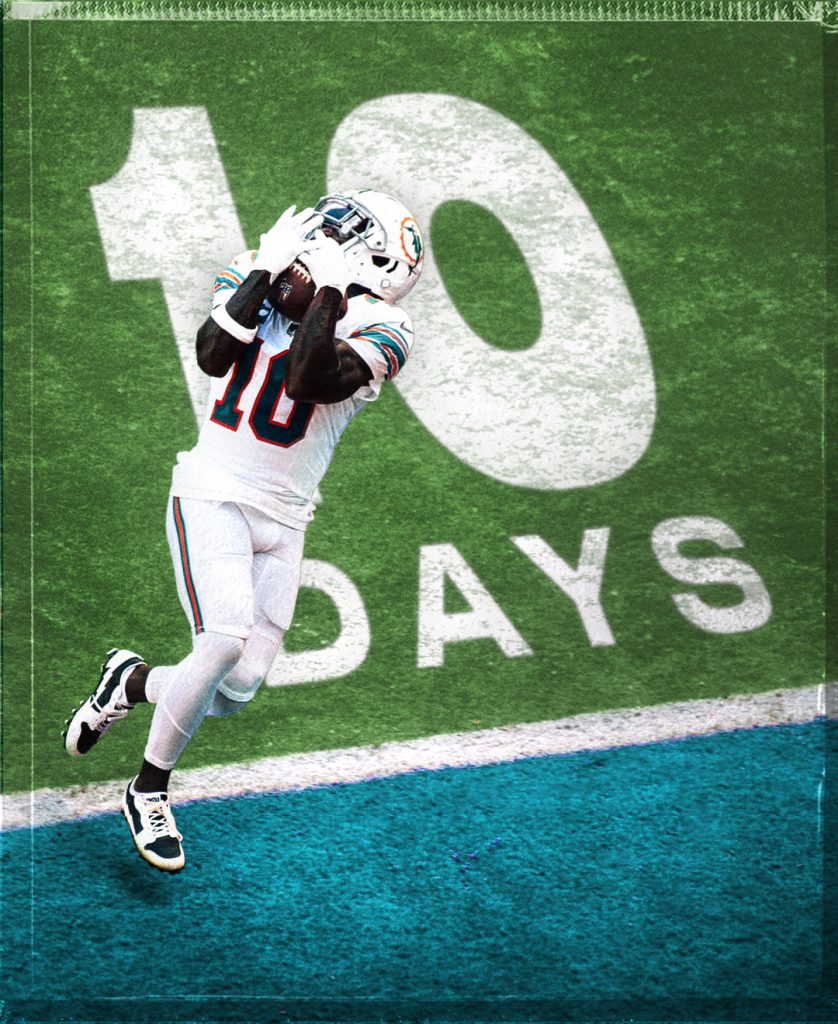
Why Tyreek Hill’s Lack of a Performance Bonus Might Be a Good Thing
Tyreek Hill is a standout player, widely regarded as one of the fastest and most dynamic wide receivers in the NFL. Known for his explosive speed and ability to deliver game-changing plays, Hill has been instrumental in both the Kansas City Chiefs’ Super Bowl run and the Miami Dolphins’ offensive firepower. However, unlike many NFL players, Hill’s recently signed three-year deal with the Dolphins doesn’t include performance-based incentives.
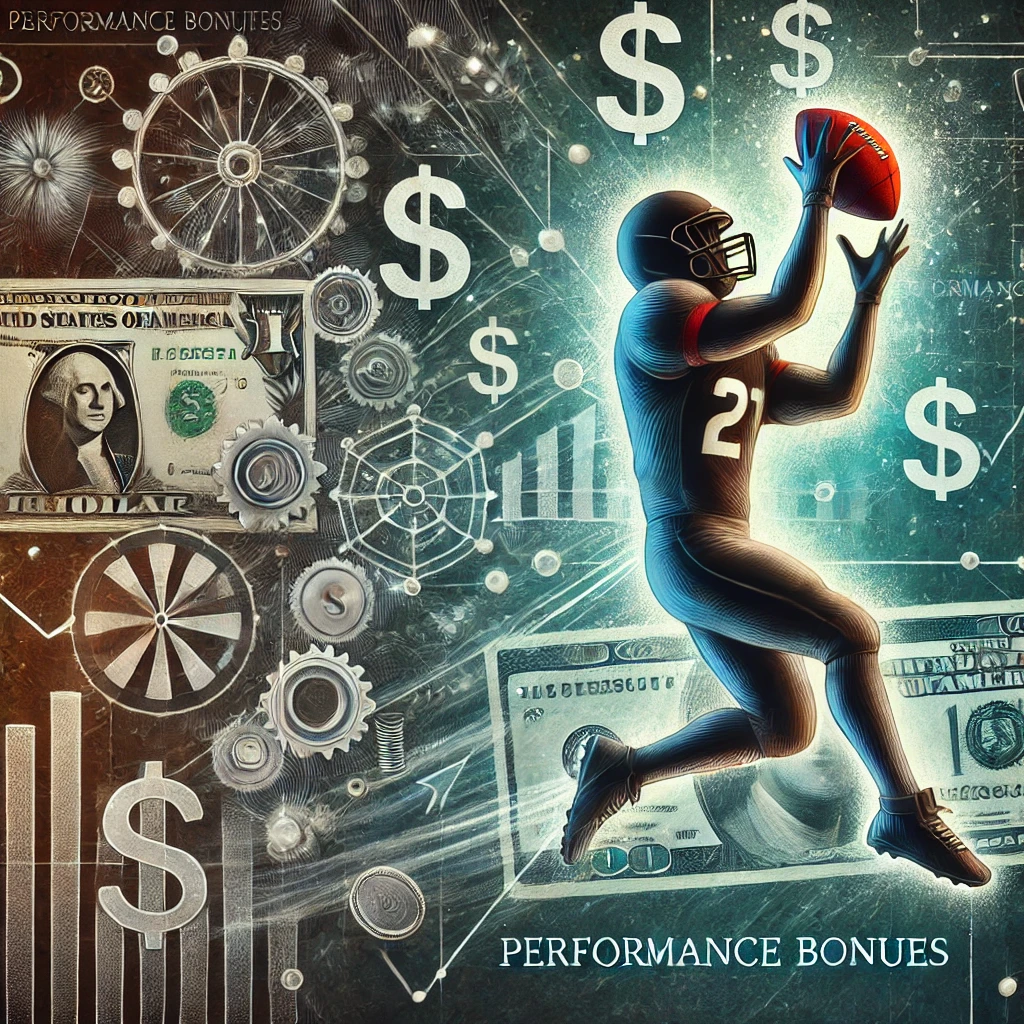
The absence of performance bonuses may seem unusual in a sport where players are often rewarded for surpassing individual and team metrics. Typically, NFL performance bonuses are classified as “not likely to be earned” (NLTBE) and are only paid out if players exceed specific targets—such as a certain number of touchdowns, receptions, or yards. This makes sense from a salary cap perspective, as these bonuses don’t immediately count against the team’s cap until they are earned.

In light of this new study, the Dolphins’ decision not to tie Hill’s compensation to game-winning plays or statistical performance may be a stroke of genius. By removing the financial pressure of needing to hit specific targets, the team may be ensuring that Hill stays in his “sweet spot” for optimal performance. High-pressure scenarios, such as catching a game-winning touchdown in a playoff game, could lead to mental over-preparation, where the brain becomes so focused on the reward that it undercuts its ability to execute smoothly.
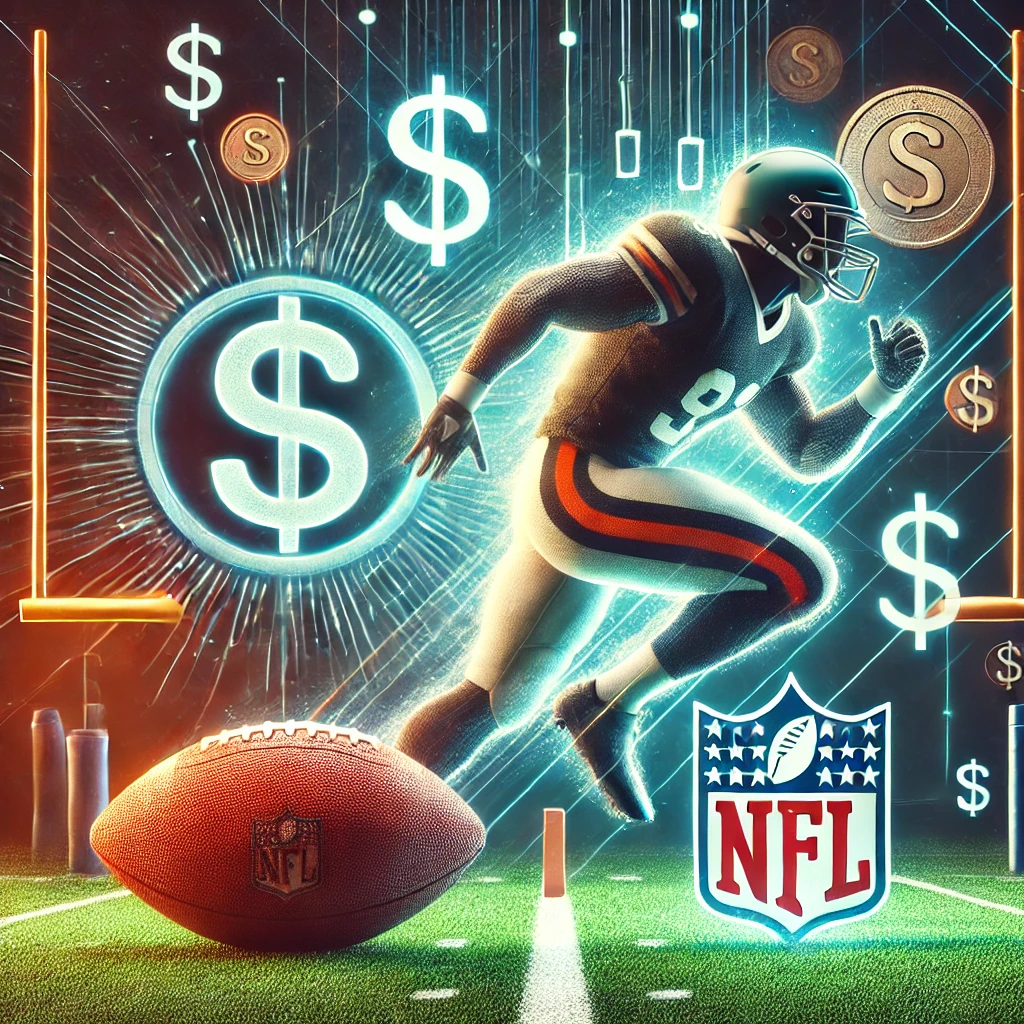
Could the NFL Rethink Performance Bonuses?
The NFL’s reliance on performance bonuses might actually be counterproductive when it comes to key players who thrive on making split-second decisions. As the study suggests, larger rewards can push athletes out of their peak performance zone. By removing the financial aspect of high-stakes plays, the league might see fewer dropped passes, missed tackles, or errant throws in the most crucial moments.
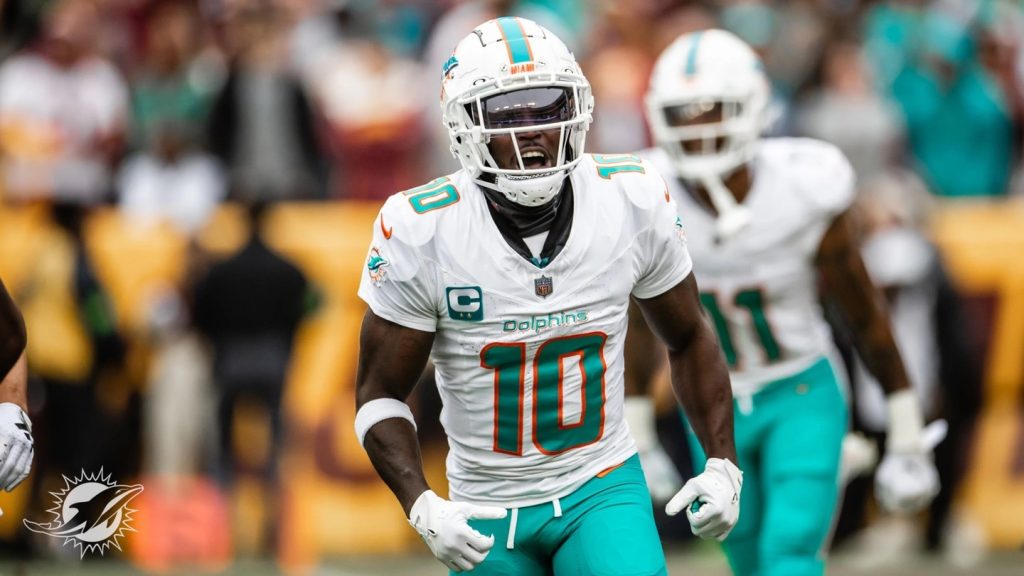
For Tyreek Hill, whose speed and agility are vital in pressure-packed moments, a lack of performance-based incentives might help keep him from overthinking in critical situations. Instead of worrying about how a dropped ball might affect his paycheck, Hill can focus entirely on his game, potentially reducing his chances of choking under pressure.
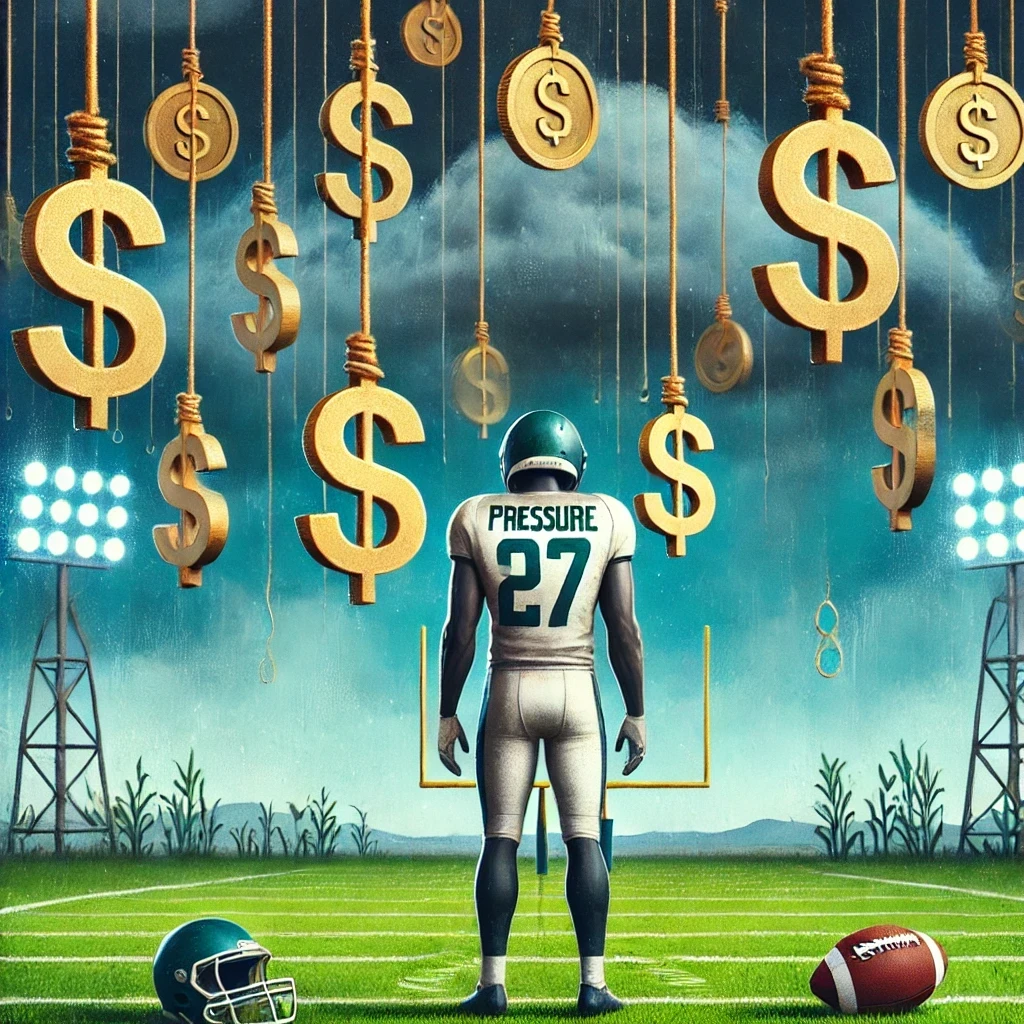
A Future Without Performance-Based Incentives?
The NFL might want to take note of this research when structuring future player contracts. Rather than tying compensation to on-field statistical milestones, which could inadvertently add pressure and increase the likelihood of underperformance, teams might opt for guaranteed pay structures that eliminate these distractions. In doing so, players like Tyreek Hill could focus on playing at their best, without the looming specter of missing out on performance bonuses hanging over them.






